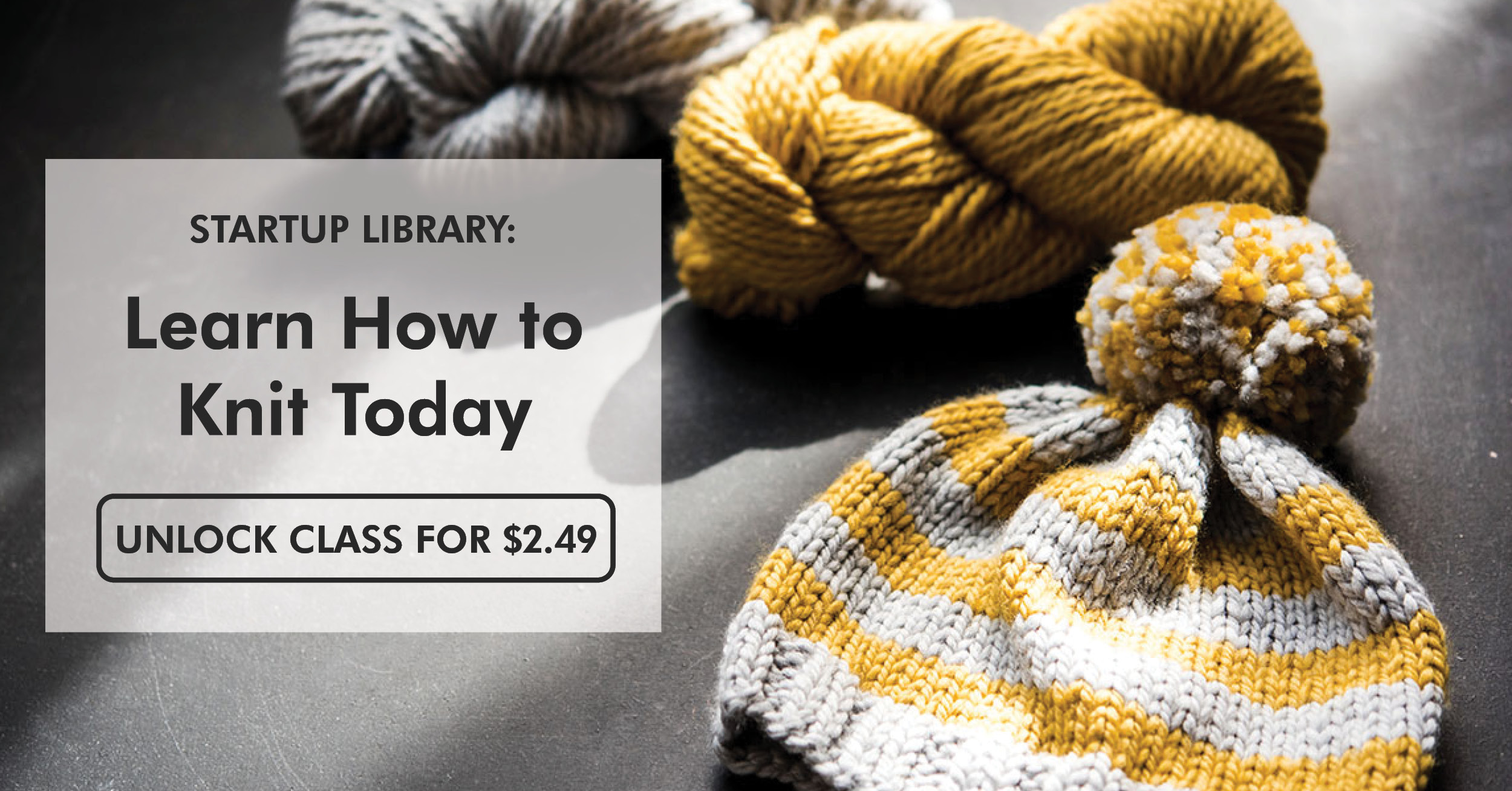
The circular knitting needle may seem like a specialty tool, but it could actually be the most useful needle in your knitting bag.
Sure, circular needles — two tapered needles connected by a flexible cord — are great for larger projects and knitting seamlessly in the round. But they’re so much more than that — you can use them instead of straight needles in any project, and you can also use them instead of double-point needles with the help of magic loop.
Before you go trading in all your needles for circulars, it’s important to understand cord lengths. The needle tips themselves follow the same rules as straight needles, but circulars come in a variety of cord lengths, too.
So, say a pattern calls for size 7 16″ needles: That first number refers to the needle size (aka the size of the needle head), and the second one is the length of the needles from tip to tip.
Most patterns will tell you which cord length you need for your project, but if your’e going rogue, here’s our handy guide to cord lengths.
The Key to Cord Lengths

9″
Good for: really, really narrow projects, like baby hats, and sleeves
This the shortest length you’ll find — anything with a smaller circumference will need to be worked on double-points, because it just isn’t possible for the needles on a shorter cord to even come together to work stitches.
16″
Good for: small projects, knitting in the round
These needles are perfect when the project is just a bit too large to fit on double-pointed needles, including hats (for grown-ups and for kids), baby-sized sweaters and booties, and collars and sleeves on the sweaters you knit for grown-ups. Hat patterns will often ask you to use a 16″ circular needle to work the brim, and then switch you over to double-pointed needles as the hat gets smaller at the crown.
24″
Good for: most projects, especially sweaters
29″
Good for: medium-sized projects knitted flat or in the round
The 29″ needle can be used for things like baby blankets or cardigans that are large but not as big (or heavy) as a shawl or adult-sized blanket.
If you’re knitting a sweater in the round, this is a solid choice for working the body.
36″
Good for: heavy or large projects that will be knitted flat; small circumference projects knit with magic loop
Knitting something heavy like a shawl on straight needles can be a pain in the wrist — literally! That’s when you break out the 36″ circular needles. They put all the weight of the project onto the cord, allowing you to speed along as you knit, while the rest of the knitting is on your lap or on the table. Straight needles also have a limited amount of space on them, so casting on 340 stitches is probably impossible. Again, not so for 36″ circular knitting needles.
This is also a great length if you want to try knitting a sleeve with the magic loop method instead of DPNs.
40″ and Up
Good for: knitting socks and sleeves two at a time, bed-size blankets
Circular needles also come in lengths of 40″ and 47″, and even go longer than that.


I have a circular needles that has 2 different size tips. One is 11; the other is 2 (US sized). What is it used for?
Would someone please help me understand the benefits of becoming a member? Im new to this site - I landed on it accidentally; the name perhaps familiar. Is this a free resource site with additional benefits if you sign up as a member? Is there someone available who has the propensity to explain very clearly and in detail (no message is ever too long in my books - I'm bilaterally profoundly deaf) and whom is kind - and willing to discuss benefits and reasons for membership [& the type] please.
I too was wondering about making socks? What type of thread is used.
I’m knitting a throw with super chunky not sure what size circular needles to use
Please, if your project calls for a 3mm but you only have a 5mm same length, still co same amount of stitches? Ty
What length circular 3/14mm needle will fit 333 stitches.
I would like to learn how to knit with a circular needle
What size circular needle do I need to knit a scarf about 50 inches long?
I have an interest in knitting and i just started but with straight needles. I'm in Kenya and iv really struggled getting the Circular needles especially for knitting baby blanket. Kindly assist me on how to purchase. Thank you.
I have got 16inch 4mm circular needels the baby hat pattern says 71 sts there is not enough sts for the needles do i nned a smaller size.